|
Score: 94/100 (9.4 out of 10)
You know, the more times we reread this book, the more and more we appreciate it. Nikki Broadwell has really demonstrated what a great storyteller she is. Her ability to weave together beautiful, detailed sentences with dramatic events is top-notch. It's no surprise considering she is the epitome of prolific authors with over 20 books published! She is an extremely capable and competent author with a load of experience. We definitely noticed that in Rosemary, which was rated 9.5/10, an almost-perfect score. Her latest novel, The Last Keeper of the Light, is par for the course. It is a very well-crafted, intriguing read. This book truly shines in one regard: the world-building. This is one of those books in which the world is a character of its own. This is true dystopia—a fallen world without rules, laws, or apparent direction. The government in the book apparently fell seven years before. Earthquakes, storms, race riots, wars, and apparent nuclear fallout have all taken their toll. It is repeatedly stated by the characters that they believe they're a handful of “hundreds” of survivors. Unspeakable crimes are normalized. Humanity has lost its humanity. Rats are a delicacy. Babies, children, and women are sold as commodities. Everything seems backwards. Everything seems wrong. That's what you want in a dystopia. You want it to be miserable. You want it to be hopeless. It sounds weird, but that's the name of the game in the genre. Too often we encounter something that's a hybrid between dystopia and about a dozen other genres including, believe it or not, comedy. We should not be laughing or smiling at a dystopia. This book really nails that. This book is miserable. This book is borderline hopeless. And it's beautiful and effective in those regards. The people in this book, beside maybe a handful of protagonists, are despicable. This really puts forward the idea of a fallen world, a world in which, as a character in the book states, “everyone's bad.” It is stated that in a world like the one in this book “the selfish are the only ones who'll survive.” Even the main protagonist (as wonderful and sweet as she seems to be) grows to get used to killing, and it ceases to bother her. Her estranged ex-soldier father, Lars, is quite literally one of the main villains of the first half of this book while simultaneously being one of the protagonists. That's the bizarro-land we're dealing with: a book in which the villain is our ally. Even the protagonist's mother, Bethany, is crooked at times, although we still mostly love her. For example, she chooses Lars, a terrible human being who abandoned them, resulting in the death of one of Bethany's sons, over Ben, her loving boyfriend, simply because Lars is better armed to protect her and her unborn child. That's cold. The main protagonists name is Sandal, and what a protagonist she is! Sandal might be one of the best characters of the season, at least in terms of her character development. Few characters grow as much throughout the course of a book than Sandal. When we first meet her, she's an immature, playful, childish girl who is fascinated by bugs and doesn't understand sex or even what a penis is called. When she is impregnated forcefully and violently early in the book, she says that she thought a baby came from love, not from violence. Killing, even in self defense, makes her vomit and sick. She clings to those around her for protection. By the end of this book, she's a much different character—a character who has aged a lifetime in several chapters. Jacob is a great love interest for her and the two create one of the most interesting pairings of the season. Jacob is a boy of color in a world almost barren of color due to the race wars and genocide. In fact, when we first meet Jacob, Sandal doesn't know what to make of him because she's never seen a Black person before. She's fascinated by him. She inquires about his “kind” as if he's another species entirely, and Jacob constantly teases her about that throughout the book. It's a rather interesting dynamic! There's also another great character in here who is probably going to go underappreciated by most readers, and that character is Colb. Colb is the kind of guy you want to be around: kind, compassionate, reliable, and trustworthy. Colb is one of the good ones. Now, the main villains of this book have got to be the Reds. Yes, there's Lars and military-wealthy-elite conspirators, but the Reds are far and away the most terrifying and direct villains in the book. The Reds are basically raiders who rape women before shooting them, castrate men (to keep their testicles as trophies likes scalping), and kidnap babies to sell them into slavery. They are the worst of the worst, committing unimaginable atrocities, sometimes for no apparent reason and without provocation. Something else terrifying about them is how unpredictable they are. They come and go whenever and wherever they please. Even Charlie, the leader of Jacob's group (and his dad), and Lars are taken by surprise by the Reds despite their experience. Probably the only thing we can say that's somewhat negative about this book is that the first half of it seems directionless. There's no clear plot in the beginning other than to survive. The protagonists are just trying to hang out with the group of people that gives them the best chance of survival. The first half of the book is more concerned with world-building and establishing the characters. That's fine and understandable, it just takes a bit of extra patience to get through. The second half of the book does have a much clearer plot in that it takes the protagonist, Sandal, on a perilous quest to find her childhood friend and lover, Jacob, enduring many hardships along the way including the prospect that she may have lost Jacob forever. Check this book out on Amazon!
0 Comments
Score: 92/100 (9.2 out of 10)
I Love You Just the Way You Are by Riley Rian may be the best-written and structured work of LGBTQ+ fiction that we have ever read. If it's not, it's matched or exceeded only by Valiente by A.G. Castillo, which ironically also doubled at a bit of a sports novel. This thoughtful work by Riley Rian follows two seemingly star-crossed trans and gay lovers, Maddie and Kellen, as they endure many of the struggles experienced by transgender and gay people including bullying, rejection by friends and family, ostracism by the community, and being forced to decide on their personal truth. Not only can this book be empathetic to LGBTQ+ readers, it can actually be quite eye-opening to cis and straight readers. This is a very rare perspective. We've read books about gay characters and trans characters, but we've never read a book about gay AND trans characters. It can be confusing or off-putting to some who simply don't understand this lifestyle. This book seeks to address the confusion and anxiety that people have by humanizing these characters, reminding readers (and society at a whole) that gay and trans people are still people—human beings—who have thoughts, needs, dreams, and desires just like everyone. One of the ways that this book achieves this the best is in showing the audience that trans and gay people have interests that don't involve sex or gender—they're athletes, video gamers, Twitch streamers, artists, and authors. They can even be fans of metal and rock music. Something that may be the most shocking to unfamiliar audiences is that a trans character like Kellen could be a 6 ft.+ 200 lbs.+ star quarterback on a football team. In other words, it could be shocking to some is that trans people might love some of the same things and be good at some of the same things that cis people are. Who would've thought that a trans person might love football as much as the old, cis white boomer down the street? Who would've thought that a trans, gay person might love video games or manga as much as the cis, straight nerd next door? Kellen dreams of going to USC on a football scholarship despite struggling in school. They are menaced by their alcoholic mother (who drinks over eight beers a day) and their violent, right-wing father. Kellen is also a skilled and passionate artist who loves manga. Maddie, formerly known as Jeff, is also a lover of manga with a much more supportive and loving family structure. One of her fondest hobbies is live-streaming her gaming on the Twitch platform where she sometimes has over 300 live viewers. That doesn't mean her life is sunshine and roses as she is often bullied at school and treated poorly by those who don't understand trans people. So, her struggle parallels Kellen. Overall, Kellen and Maddie are a very interesting and often sweet couple. There are some times when their relationship seems a bit off simply because Maddie starts the book by repeatedly rejecting Kellen's advances while Kellen comes across as a stalker—even admitting as much several times. So, even in a cis, heterosexual context, the beginning of their relationship seems to have a rocky and sketchy start. At the same time, it's understandable. Both Kellen and Maddie are still coming to grips with presenting as their new genders and accepting their attraction to the same sex. They both have an anxiety of not being accepted and, in Kellen's case, being killed by either parent or having his football career implode on itself due to a PR nightmare. This book seeks to answer many of the questions and struggles that people have about this unique demographic. All in all, this is a worthwhile read if you're into LGBTQ+ literature. Check it out on Amazon! Score: 95/100 (9.5 out of 10)
Rosemary for Remembrance by Nikki Broadwell is a very special book. It's nothing like we expected. See, when you approach a World War II novel about a POW, you think you know what you're getting into. We've read enough of these to have a feeling of what's probably going to happen. And, to be honest, we were a bit worried as soon as we read the forward. We were concerned that the forward would spoil the whole book for us, but it was more like a movie trailer than anything—the book is about far more than a POW during WWII, FAR more. In fact, the whole war only takes up about half of the story. Like Homer's Odyssey, this is ultimately a romance and a drama—a romantic drama—with paranormal elements. In fact, it explores a lot of the same things that Homer's work did—dilemmas like what it means to be a soldier, the roles of husbands & wives, and what connects us (and separates us) as human beings prone to conflict and war. And, yes, you read that earlier part right: this has PARANORMAL elements. In fact, it's a pretty big aspect of the book, and that was a huge surprise to us. The main female protagonist, the titular Rosemary (“Rosie”), turns out to have ESP. In other words, she's a blooming psychic. Mostly, this takes the shape of surreal dreams connecting her with a version of herself in a past life, Rebecca. These dreams about Rebecca start to become more frequent when her soldier-husband, Dylan, gives her a locket before departing for the Pacific Front to fight the Japanese in World War II. The locket seems to act as a spiritual conduit, a magical object connecting her with Rebecca and her parallel marital struggles in her parallel life. Rebecca is married to a soldier named Edward, an insufferable jerk of a husband with misogynistic tendencies who constantly belittles Rebecca and considers himself superior to her. Rebecca and Edward serve as the perfect foils for Rosemary and Dylan, the main couple we cheer for. The relationship between Rosemary and Dylan is truly powerful and inspiring, especially when you consider that they're based on real people who were separated during the war. This is one book that really gets the sex scenes right. We've read so many other books with vivid, detailed, over-the-top, aggressive, in-your-face descriptions of sex. This book doesn't do that. It gets one thing right in that regard: it's tactful. The sex isn't just there for the sake of voyeurism or to be risque, rather it effectively sends the message to the audience/reader that Rosemary and Dylan are two people who really, really, really, truly love each other with a passion. What's more: it sends the message to the audience/reader that these two people trust each other and share a very strong bond. This is especially important when you consider that this very strong bond is about to be pushed to the limit and challenged in several ways, including one that's familiar to every single person who has ever been in a relationship: distance. There are few things more devastating to relationships than distance. Add to that the potential of one of them being tortured, starving to death, getting typhoid, or being decapitated in a self-dug grave and you have the recipe for an absolute drama-filled, tense book that keeps you turning the pages to figure out what's going to happen next! Now, this is the third book about a psychic that we've read this past 30 days. It's also the third or fourth World War II novel or memoir we've read this year. Even with all that said, this book still manages to stand out as unique in that it explores so much more than just war. This is about the actual human toll that war takes even on those who've survived or who experience the trauma and uncertainty of war from a distance. Spouses and families of soldiers suffer too. We often overlook that because the bullets aren't flying over their heads, but war can cause tremendous conflict and anxiety at home, away from the front-lines. This book captures that aspect perfectly. Check this out on Amazon! Favorite Quote: “This isn't morning sickness. This is all day sickness.” Review of “The Baseball Miracle of the Splendid 6 and Towny Townsend” by Patrick Montgomery11/17/2022 Score: 93+/100 (9.3+ out of 10)
The Baseball Miracle of the Splendid 6 and Towny Townsend by Patrick Montgomery pleasantly surprised us with its fascinating documentation of several baseball legends including Coach Towny Townsend and his “Splendid 6.” The Splendid 6 were products of Towny Townsend's amateur traveling league who made their mark in the major leagues and in life. They consisted of Michael Cuddyer, David Wright, Ryan Zimmerman, Mark Reynold, BJ Upton, and Justin Upton. Now, before you turn away because you're not interested in baseball as a sport, just know that neither were we. But this book was a paradigm shift. It really engaged, fascinated, and excited us, because it's more than about baseball, it's about who these men were on and off the field, particularly Coach Townsend himself. This book is just as much about human beings battling cancer and existential questions about their place in the world than about a battle between men with helmets, bats, and gloves. This is a biographical book about great people doing great things against unspeakable odds. Let's get down to it... Towny Townsend saw a need for amateur sports and athletics in his Virginia community of Hampton Roads. He saw that the local baseball team of Lake Taylor High was poorly led and the morale and discipline of its players was very low. He presented the idea of starting a baseball team (and later league) to several community leaders who didn't recognize him from his earlier fame and eventually, the amateur team, the Blasters, was born. Coach Townsend, through the Blasters, sought to not only build great players but also great human beings who would succeed inside and outside of the sport. According to Patrick Montgomery, “The Blasters, as an organization, was looking not just for playing ability but also the right mixture of attitude, coachability and desire.” With the Norfolk, VA area's population blooming and more kids wanting to play sports, Townsend expanded his team into a league Through the Blasters, Coach Townsend countered the scammy traveling leagues that were popping up, preying on the hopes and dreams of young players and making a killing in the bank. Townsend recognized that many amateur athletes do not make it to the big leagues, so he knew that this was more than about baseball and more than about making money. In fact, making money was not a priority with his league. He did it because he loved doing it. This book does a fantastic job at capturing the heart and passion of Coach Townsend and his vision for the sport of baseball. Much of Townsend's philosophy and mindset can be summarized by the advice his father gave him in this beautiful quote: “Be kind to people on the way up, Towny, because you will see them on your way down.” Coach Townsend's journey is perilous. He loses a large portion of his tongue and eventually his life to cancer. However, just because you know how his story ends doesn't mean his last days aren't captivating. In fact, his last days are some of the most interesting parts of the book. This book also makes a strong and impassioned argument for the inclusion of the Splendid 6 in the baseball hall of fame. This book taught us a ton about how the hall of fame works, especially how selection, voting, and induction work. It's actually incredible political and based mostly on milestones (like 500 home runs) over character. Now, there are discussion of the likes of Pete Rose (caught for gambling) and another nominee who got in despite domestic abuse. This is despite the Splendid 6 doing far more, in many cases, to expand the positive reach of the sport and care for their communities. They are, in a sense, the unsung heroes of MLB, and this book seeks to sing their song. Now, there are some other fun and interesting things in this book such as the story about Babe Ruth's drinking habit (including during prohibition). Look at this hilarious quote regarding that: Sometimes, when I reflect on all the beer I drink, I feel ashamed. Then I look into the glass and think about the workers in the brewery and all of their hopes and dreams. If I didn’t drink this beer, they might be out of work, and their dreams would be shattered. I think, “It is better to drink this beer and let their dreams come true than be selfish and worry about my liver. If that doesn't make you laugh, what will? That just shows the personality that the Babe had. Also, did you know that Babe Ruth may have been instrumental in the continued war against cancer? Did you know that nitrogen mustard (like mustard gas) was tested on him to kill and treat the cancer cells he developed? Babe signed off on that because he believed the research gathered would help a lot of people. And it did! Yes, there are a few minor grammatical errors like a missing word or duplicate word here and there, but it's nothing major. If you love baseball, or you love sports, or you love great stories about great people, check this out on Amazon! Score: 91/100 (9.1 out of 10)
Zach Aurelian is a teenager dealing with persistent anxiety and trauma from his past, much of which relates to his mother’s disappearance during a civil war that wreaked havoc on the Earth System nearly a decade before. Since childhood, Zach has dreamed of joining the Earth Alliance Fleet Academy to follow in his mother’s footsteps. The book follows Zach as he enters the academy and encounters a number of obstacles. Some of these obstacles are very direct, such bullying by other cadets and even the commandant. Other obstacles hover in the background at all times, including his struggles with anxiety and his difficulty navigating the fact that the population is evenly split on whether his mother is a hero or a villain. SPOILER WARNING ---------------------------------------------------------------------------- The book reaches its climax when the ICW uses wormhole technology to launch an unprovoked attack against the Earth Alliance System in the orbit of Mars. The battle costs more than a thousand lives, and Zach is nearly forced out of the Academy by Trask when the leader of the ICW fleet is revealed to be Zach’s mother, now operating as “Captain Shane.” Zach is ultimately cleared of wrongdoing, but when the book ends, he is left with more questions than answers. He desperately wants to believe his mother is not a traitor—and Lt. Commander Briggs swore as much prior to his death—but that is hard to reconcile with what he has seen. As the book ends, Zach is determined to return to the Academy and find answers. END OF SPOILERS ------------------------------------------------------------------------------ The author does not shy away from showing the raw nature of anxiety and how it can impact everyday life. He took care to portray mental health seriously—and realistically—throughout the book. Given the intended audience (young adults), we found this especially refreshing. Mastro clearly knew well the story he wanted to tell and the audience he wanted it to appeal to. This book is impressively cohesive and maintains a consistent tone throughout that matches up exceptionally well with what is expected from YA Science Fiction. He also navigates romantic plot-lines quite adeptly, which is a trait that is often lacking in stories that follow a male protagonist. In all, Mastro tells a captivating story that evokes real emotion because of how attached you (the reader) inevitably become to his characters. It needs to be said that this book is incredibly similar to one very popular work: the Harry Potter series. Only, this time we're focused on a space academy rather than a school of witchcraft and wizardry. Zach experiences a lot of the same struggles as Harry: coming to a new school and being in a new environment. Hoverball takes the place of quidditch. Trask seems to take the place of Professor Snape as the needlessly jerkish, seemingly jealous leader. Be warned that this isn't really a military science-fiction novel, although it does have some scenes of combat and some West Point talk. It's mostly a book about a young man and his endeavors in a military college full of crushes, drama with teachers and bullies, and even a lot of focus on the top team sport in the solar system. There's even a Space Army .vs. Space Navy game in here (essentially). The book has its intrigue and a mystery which unfolds slowly. It takes its time, which could be a good thing or bad depending on the kind of reader you are. This isn't really the action-packed, fast-flying novel you'd expect. It's more of a drama or a space opera. You can check it out on Amazon! Score: N/A
The Leaf is a short book of poetic significance by Warwick Landon. The book follows the journey of the titular leaf, perhaps a stand-in for the poet, as it undergoes the seasons of life on a journey toward an epiphany. One thing about this book is that it does respect the art of poetry. Poetry shouldn't just be telling, it should be showing through the use of symbols and details. One example of a very critical detail is that the tree from which the leaf originates is an oak tree—a tree known for its sturdiness, strength, and longevity. Being separated from this tree implies that the leaf (or the person the leaf represents) has been torn away from its original source of strength and nourishment: a parent or another close loved one. The feeling and theme of death is evident throughout the book. Similar to something like The Giving Tree, the tree's role in loving and caring for the leaf is evident. Their love and relationship seems to be reciprocal. One of the themes that keeps reoccurring in this book is the idea of returning to Mother Nature or the source. For example, there's an implication of the tree's fate to “rot and merge” with the Earth. The Earth itself seems to be a character as much as the leaf and the tree are. Similar to the book Story of Tree & Cloud, there's an idea in here of the deceased not only becoming one with the Earth but also with the air and the sky. It's beautiful imagery. Now, this is a short work of less than 50 pages. We've read it or attempted to read it about five times. It can be a challenge, in all honesty, because of the writing and cryptic nature. In terms of the writing, it's really quite rough. Ellipses are littered all across the pages in place of periods and line breaks. That in itself can be a bit of an eyesore. The other thing is that there are inconsistencies and errors in grammar and spelling. There are times when the word “oak” is both capitalized and lower-case. The book itself seems to be a hybrid, neither being poetry nor prose. It lacks refinement that comes with editing and proofreading, which is unfortunate. At the same time, the poet shows signs of being capable of writing. They just seem to need more practice. After all, this is their first book. They're still competent enough to effectively use detailed adjectives and to conjure up vivid imagery. They just need to put that all together with some editing and proofreading. You can still give this book a shot on Amazon! Score: 95/100 (9.5 out of 10)
The Final Days of Doggerland by Mike Meier might be the most ambitious novel we've read this season! It is seriously well-researched and solidly written. We typically avoid reading the plot summary or back cover, and so this book really surprised us (pleasantly)! We were not expecting such a unique story or all the nice little surprises that came with it. One thing we really appreciate about this book and recognize as quite special is that this is one of the few books we've ever read in which the main villain, Viggo, is also the main character from beginning to end. No, he doesn't devolve into villainy or fall from grace like Anakin Skywalker or Big Boss, he is who he is, experiencing a bit of an arc near the end but essentially remaining a titanic heel the whole time. We don't think we've ever read a book like that! Seriously! Now, you could make the argument for the ravens, Oane, or Nicu assuming that role of main protagonist, but c'mon... the main character—good or bad—is usually the one that the story centers around. Viggo, the villainous, ruthless, near-heartless chieftain of the Bollebarg tribe drives the plot. He IS the center of the story and thus its main character. It's quite fascinating. Viggo probably draws at least some inspiration from historical figures, tyrants, and bloodthirsty, war-mongering conquerors like Attila the Hun and Genghis Khan. Viggo seems to be at war with everyone: every other tribe and even his own tribe (at times). Viggo is a pretty complex character. You could oversimplify him and classify him as a professional a-hole, but he's more than that. There are times when he does reveal a bit of humanity such as when he jokes with and even nudges others in a “somewhat friendly” manner. There's even a part in which his wives joke about how disappointing he is in bed with one imitating him, saying, “You awake?” Viggo also shares a somewhat adorable owner-pet relationship with his ravens, Tanka and Sinne, who he often feeds and talks to like confidants. He also spares the heroes, Oane and Nicu, although under the guise of basically using them as slave labor such as to hunt for him. He also doesn't immediately kill or horribly torture a friend for sleeping with one of his wives, which is... somewhat merciful for a tyrant. But let's not mix words, Viggo is a terrible, awful human being who frequently abuses his wives, brutally murders innocent people who are just trying to survive at a time of a geographic crisis, and even tortures his own people for crimes as simple as sneaking an extra bit of food. He sets up kangaroo courts and makes summary judgments. He puts things up to a vote in a false poll, only to reject the result entirely. Freedom and democracy are not things that sit well with Viggo. In a sense, he brings legalism and despotism to the Neolithic age. Another thing that's very unique about this book is that it's possibly the only book we've read in which an animal's perspective is the main perspective from beginning to end! Viggo's two pet ravens, Tanka and Sinne, narrate this entire tale! And it's quite interesting and fun. What adds a bit of a wrinkle to all of this is that the ravens, obviously, do not speak the same language as all of the humans, but they understand most things that humans do and try to communicate to them frequently. A lot of the time, they seem to play both sides. They want to protect their master, Viggo, but they also want to do the right thing and protect his wives, Nicu, and Oane. They understand morality perhaps better than some of the humans do. They know when something just isn't right such as many of Viggo's actions. At the same time, their ultimately moral compass revolves around their stomachs. They will go to where the food is and support where the food comes from. In a sense, they represent nature speaking to us. Nature is not an empty, stoic, lifeless thing, it has a conscience and needs just as the ravens do. Another way in which this book shines is in showing us a world in which people live in desperation and in which resources are scarce. There aren't 7-11s or automobiles in this world, of course. Everything that the characters eat has to be found, harvested, hunted, and/or captured. Even their clothes are made out of things like wolves to withstand the weather. Speaking of wolves, the wolves are always there to remind us that danger lurks outside of civilization. The camp is the closest thing to a safe space that the characters have, and it's unfortunately run by a bloodthirsty tyrant. There are also some interesting survival tactics put on display like when a character uses maggots from a dead deer to help heal a wound, knowing that the maggots will only eat the bad flesh and leave the good flesh alone. Lastly, there are a lot of nice little touches to the book that add a bit of spice. For instance, every chapter has a nice little pattern accompanying its header, and many of the pages feature a cool footer. There are also full-length songs accompanied by sheet music and rather nice illustrations that remind us a lot of Pilgrim's Progress. Check this book out on Amazon! Score: 89/100 (8.9 out of 10)
This cute, fun little children's book hearkens back to some of our very first and favorite books growing up. There are hints of Sesame Street and Go, Dog,Go in here, playing to the beat of One Two Buckle My Shoe. The book invites children to join K Dot, a friendly, cheerful, and intelligent Ladybug who loves to count and sing. She winds the children up like a Beyblade and dives head-first into song, counting from 1-10. Meanwhile, the illustrations on the page reflect the lyrics, showing 1-2 dragonflies, 3-4 caterpillars, 5-6 crickets,7-8 ants, and 9-10 honey bees. These creatures are some of the cutest, best-illustrated elements in the book! While the illustrations are quite simplistic, they accomplish the overall task of appealing to kids. If we were to be slightly critical, it would be that the bit rate and conversion quality of K Dot (the lady bug) herself seems to be lower than that of the surrounding illustrations. In other words, she's clearly blurrier than the other animals and objects. We know it can be rough and technology doesn't always cooperate with you when you're editing. That's true for both writing and illustrations: software sometimes “fights” you. Another thing is that the same image of K Dot is clearly reused multiple times, copied, pasted, and angled differently. That's understandable when you have a clear limit in terms of time, skill, and/or budget. K Dot does change in one regard: her shoes. No, she's not quite Imelda Marcos, but she does have a variety of shoes in her collection. She changes from her favorite white cowboy boots to multi-colored rain boots to Converses depending on the situation. Children might find it fun to distinguish between the different kinds of shoes she wears. Another thing we're somewhat critical of are the lyrics themselves. Again, the lyrics are adapted and repurposed from the song One Two Buckle My Shoe. That's fine. The issue is that some of the lyrics don't fit the beat of the song, which can throw you off a little bit. Here's an example (to paraphrase): “Seven, eight, shut the gate Nine, ten, sit on a big fat hen.” So, here you see that the second line is noticeably more wordy and a bit more complex with the additional verb of “sit on.” We can understand why that was added, but it throws off the rhythm of the song a little bit, as does “jump over sticks” compared to “over sticks” or “pick up sticks” (the original lyrics). You see how a few extra words can throw off the rhythm of a song? Now, to this book's credit, it does encourage readers to emphasize verbs and actions more, which can be a good thing in teaching language. So, we're not going to be too fixated and harsh about that. Another thing that's a bit humorous about this book is that K Dot takes so...long...to start...the song. She takes She seriously takes like ten pages ramping and revving up the kids to get ready to count before actually counting. Obviously, kids are generally going to be most interested in the song and the counting. They might feel excited to answer the question, “What is your name?” but all the other stuff if probably going to try their patience a little bit. It's really funny though. Maybe it's an inside joke because K Dot goes from saying something along the lines of “Hello, numbers, here we come!” to “Hurray, hurray, it's time to count and play” to “Let's count together even if it's wet weather.” That's like asking the kids three times if they're ready for the book to start or if they're “sure-sure.” You might actually get a good laugh out of how hilariously delayed the introduction section is. Your kids might actually join you in saying something like, “Come on, K Dot. Come on!” Anyway, your younger kids might really enjoy this cute little book. We definitely support the author's mission to educate and entertain children with this continued educational series! Check it out on Amazon! Score: 94/100 (9.4 out of 10)
Confessions of an Accidental Lawyer is a hard-hitting, emotional courtroom thriller and family drama. The book actually has two major plots that intersect. First, there's the familial struggles of a young lawyer named Daniel Simmons whose wife's health is a constant concern. His wife, Hannah, still dreams of becoming pregnant again despite being a victim of medical malpractice that destroyed her uterus. Second, there's the huge legal case surrounding an elderly prisoner named Emmett Kendrick whose health is also extremely sensitive and who frequently faces neglect and abuse in prison. This book is dense. It has a lot to say and a lot to discuss. It covers such issues as parenthood, marriage, the Eight Amendment, the US constitution and constitutional rights, the US prison system, the US legal system, juror and overall bias, and access to healthcare. Both Daniel and Emmett are excellent protagonists who definitely get the audience behind them. You especially feel for Emmett, a man who seems to have already done his time and more. He has suffered greatly and been treated incredibly unfairly by the prison system, being denied the medications he needs to stay alive and avoid pain and he has been forced into the inhuman conditions of solitary confinement. Any American who believes in human rights and decency will be greatly upset by his treatment in this book. However, they may also find themselves impressed and inspired by his disposition as he politely and legally pursues the betterment of his situation using only his bright mind, patience, and a type writer he rents for $2 a day. Imagine that: being trapped in cell with only one view of the outside and nothing to do but think and type on an old typewriter. Imagine being in pain constantly and knowing that your heart could give out at any moment? Imagine only being able to shower three times a week and not being able to interact regularly with anyone? It's really miserable to imagine losing all of your apparent rights and freedoms. It makes you wonder: is this really the best we can do as Americans/human beings? The author has a phenomenal, impressive grasp of both legal and medical knowledge. He must've interviewed so many people involved in the prison system and done so much research. We couldn't help but be blown away by the new things we learned. Did you know that only 5% of cases go to trial? Did you know that there are prisoners pretty much doing de facto life-sentences (50+ years) for crimes that aren't even considered serious crimes anymore? Did you know that the only way to make a formal grievance from a prison cell is by going through the very people who are mistreating you and who earlier ignored your pleas? Did you know that many lawyers avoid representing prisoners because there's no pot of gold at the end of the rainbow (no money to be gained)? It's incredibly troubling and disturbing to think. That's pretty much hell. Emmett isn't even asking for much. Emmett isn't asking to be released or to be paid a lot of money, all he wants is regular access to his life-saving medication and to be restrained in a way that doesn't put pressure on his body. Emmett's health is extremely delicate. He is the survivor of a heart attack in prison that the doctors called a “widowmaker”--the kind of heart attack that usually kills people. He has suffered multiple heart attacks and has had heart surgery. A negligent doctor once made an order that almost killed him. So, you immediately see that there are several parallels between what's happening to Emmett and what's happening to Daniel's wife, Hannah. Hannah's health is also sensitive and is in the precarious state that it's in because of a negligent doctor in Ithaca. Like Daniel, Emmett was a poor, desperate young man who thought he was taking a shortcut to better his life. Only, Emmett became a robber and a prisoner while Daniel became an indebted lawyer. Now, we have to be honest: Daniel & Hannah's personal issues were not as interesting or compelling to us as Emmett's. That might sound harsh, but Hannah did come across as a bit annoying. Hannah insists on becoming pregnant again, declaring that she wants four children (three more) plus their Labrador. She knows that every single one of these pregnancies have a high likelihood of killing her or the baby, yet she keeps nagging her poor husband about it and putting them in predicaments. She even guilts Daniel, telling him that her dreams of being pregnant again is no less valid that Daniel's career dreams just because it doesn't earn money. Well, lady, not only does it not earn you guys money, it costs you guys money for every in vitro fertilization and puts you and your unborn child at risk of dying—taking up at least one bed (if not two) in a hospital that could be caring for other people who don't control their own destinies. You could choose not to put yourself in that situation, some of those patients can't. Some of them got hit by a car, got assaulted, or fell on a sheet of ice. They didn't plan months in advance to put themselves in a life-threatening situation. Lady, your daughter sleeps with a grapefruit because she's afraid and goes to school looking like a dog because you apparently don't have the time to get her a haircut. Can you take care of what you have first? This is a situation that's bizarrely familiar to us, though. We can empathize with them both. Still, it just seems like Hannah's whole dilemma is a snowballing problem waiting to happen. If she would just be content with raising the daughter she already has and/or consider adoption, she could save herself and her husband a lot of heartbreak (and possibly her life). Anyway, if you love courtroom thrillers, this is a superb book. Check it out on Amazon! Score: 88/100 (8.8 out of 10)
Betty Cries by James A. Leyshon is a very unique and ambitious novel. It takes a bunch of risks and approaches storytelling from a lot of different angles. The novel follows a psychic man who can see ghosts. He is constantly haunted by one particular ghost, that of a little girl named Betty who cries at a particular time of the day and talks to him. It definitely delivers on these promises and more by the end. It ultimately becomes a very worthwhile read. Now, put that all on the side for now. Just imagine you're a publisher or a literary agent seeing this manuscript for the first time. Imagine you don't have this creepy (yet cool) cover of a ghostly little girl staring back at you, nor do you have the description on the back cover. Imagine that for a second. Imagine that all you know is that this book is a fiction book about a guy, a guy named Jake. You're going to have to figure out what this book is about, what the plot is, and what the characters actually want. Now, as we said before, this book does eventually deliver something resembling an interesting and tension-filled plot by the end. By that point, the conflict becomes much clearer and easier to understand. However, for about three-fourths of the book, it seemed to meander. It seemed directionless, although it did tie together reasonably well. For three-fourths of the book, do you want to know who we thought the villains were? We thought it was either Jake himself hiding literal skeletons in his closet, terrorizing poor bookstore clerks, or the IRS. That's right, we thought the IRS was the big bad of this novel. And, yeah, a cop named Michael was on the side doing shady Buffalo Bill-type stuff like chaining a dude by the neck and seemingly having him dig his own grave, but it was what it was. It was over on the side. There are times when Jake just seems to be doing stuff. Things just seem to be happening to him. In the beginning, it seems like he has been kidnapped, but he hasn't been. Or has he? He seems to be astral projecting or something. He projects to a children's party. He sees a clown. The clown freaks him out. We, as the reader, don't know why he's so terrified other than the fact that clowns are objectively creepy. He wakes up sweating as if from a dream. Maybe he was having a premonition? We don't know. We don't know anything. There's a lot we don't know yet. This isn't really explained until later. Jake hears a little girl crying in his closet and thinks little of it at first, even rolling his eyes. We assume Jake might be a kidnapper, but that issue is left hanging for a while. This is a horror-mystery after all. Next, he's acting like a somewhat-cool, somewhat-creepy hipster art professor oohing and awing over nude art. Then, he and his student groupie cult accidentally summon an arch-demon from hell named Asmodeus (which is pretty much irrelevant to the main plot) and the ghost of a professional a-hole named Frank (who is also pretty much irrelevant to the main plot). Frank does provide some humor as he's pretty much the Genie from Aladdin minus the Genie powers. Then, Jake engages in small talk and chit chat with side-characters including law officers trying to solve a murder and a love interest who might be a witch. Next, he's tearing up a bookstore and intimidating a bookstore owner with his psychic powers over scalping books. So, do you see the issue we had? It was like the book was as schizophrenic as Jake is. It was like it couldn't decide what it was or what it wanted to be. So, WHO is Jake St. Johns? WHAT is his actual character? Because Jake seems like an amalgamation of like five different characters competing for space. First, he's a psychic medium with ESP who can see and talk to the dead like the kid from Sixth Sense. Second, he's a nerd who collects literature and comic books. Third, he's a heartbreak kid caught in a bit of a love triangle with the hot waitress and the new side piece who might be a witch/psychic. Fourth, he's a millionaire or something, or at least “rich.” And, fifth, he runs an art academy that seems to double as a groupie cult surrounding him. So, he's a borderline cult leader too. He often acts and talks like he's an angry, angsty, hormonally-driven 13-year-old who likes comics, nerds out over naked people, and cracks crude jokes while entertaining a god complex. Some these other things suggest he's like 30-45 years old. This is similar to something we noticed in another book called The Devil Pulls the Strings in which an adult character sounded and acted much younger and less mature than they ought to be. On a side note, Betty talks much older than she's supposed to be and seems to be in control. Actually, on another side note, ghosts like Betty and Frank seem to be pyromaniacs who have some kind of pyrokinesis. They'll just burst out when they're frustrated or don't get their way, setting everything on fire. Do ghosts actually do that? That's kinda... unique... Going back to Jake, Jake is also insufferable when it comes to women and people of other races. He can be very insensitive, especially, when talking to people of color in the book. No, he doesn't use a slur, but he imitates what he thinks they talk like. This usually leads to them threatening him or telling him to, well, STFU MOFO. He can also be very rude to people in general, even telling them to go away and making a scene in a diner. Something just seems... off about Jake St. Johns the character, and perhaps that's the point. Jake is a weird, strange, bizarre person. You would be weird, strange, and bizarre too if you could see dead people and they talked to you. The thing about all that is: is he a likable character? Because Jake can be quite the anti-hero. He's kinda a jerk, actually. There's a moment in this book where he gets frustrated at not being able to scalp books by a bookstore owner, then uses his psychic powers to intimidate the man and make him hit himself multiple times. After going on this and other power trips, he starts referring to himself as a “god” or a deity, although somewhat sarcastically. He is even referred to as a “mental parasite,” which actually seems to fit the character. With that said, Jake does show moments of being a good person deep down inside. The best example of this is how compassionately he ends up responding to Betty, the ghost of the dead little girl, often trying to hold and hug her. He also at least tries to tip his cab driver, although he considers running and leaving him with the tab. This book is actually not as serious in tone as we expected it to be. It's actually quite light and seems to be played for fun and laughs. It's filled with jokes and awkward moments from both the living and the dead. It might best be described as “Shenanigans of a Psychic” because, really, a lot of this book deals with Jake's abnormal powers and personality intersecting with mundane, real-world things. Now, there is an over-arching conflict, so let's get on to that. ------------------------------------------------------------------------ CLICK AWAY TO AVOID SPOILERS. SPOILERS AHEAD! So, it turns out that there is actually a main villain in this book. His name is Michael, a crooked, murderous vigilante cop who is believed to be responsible for the death of his wife and unborn child. Michael seems to have gone on a sort of crusade, dedicating his continued existence to the capture and slaying of others who he deems to be too much like him: evil. He has basically crowned himself the role of “Holy Smiter” believing that it's his divine duty to hunt down other murderers. However, his hypocrisy blinds him to his own evil and crimes. Some of the best parts of the book are when the ghost children continue to badger him to “tell the truth” and “tell them what you did” and he ignores them. Oh, yeah, he also dresses up like a clown as an alter ego. So, that explains Jake's fear of clowns. Ok... So, Jake is a precog too? So, not only does Jake have ESP, telepathy, astral projection, energy projection (which basically doubles as telekinesis), and the ability to see/talk to the dead as a spiritual medium, but he can know the future too? The dude is loaded. Psycho Mantis is jealous. What's good about the ending is that it doesn't allow Jake to just run roughshod over Michael with his powers. That would've ended up being quite anticlimactic. Michael is a clever enough villain to at least try to contain Jake. Jake is actually vulnerable near the end, something you want in your protagonist, and he requires help from others into Tammy the witch, Joe, the other police officer guy, the kidnapped kid whose dad is a lawyer, the kidnapped kid's mom, and all the ghosts (including Betty and Frank). So, yeah, after all that convoluted build-up, it ended up being somewhat worth it in the end. There was a payoff for just about all of those dozen or so side-quests that Jake went on. And, yes, in case you were wondering, there's even a resolution with the book store owner Jake traumatized, hurt, and set up for entrapment. ------------------------------------------------------------------------- END OF SPOILERS So, yes, this book is a Gordian knot of side-characters, side-plots, and shenanigans, but it has its moments and is a worthwhile read. Check it out on Amazon! |
Archives
April 2024
Categories |
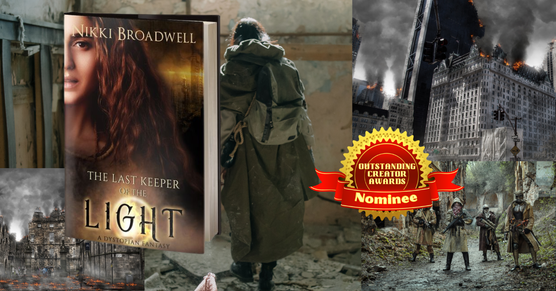
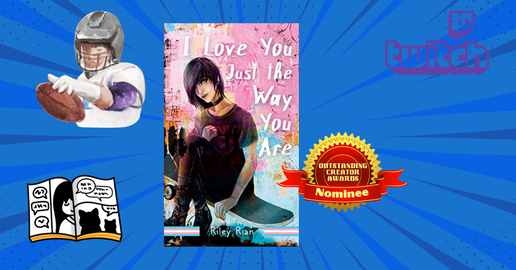
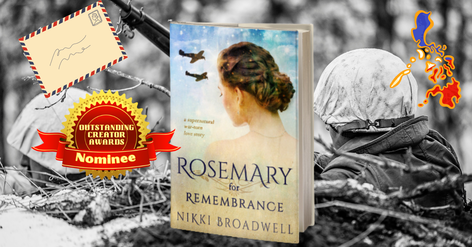


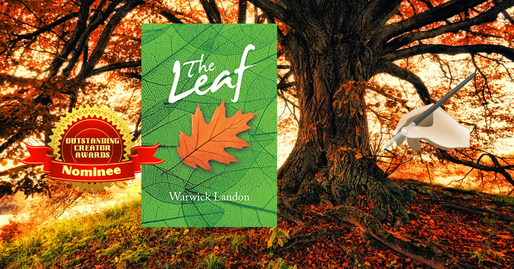
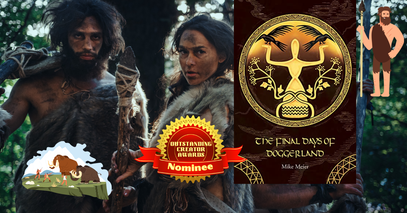
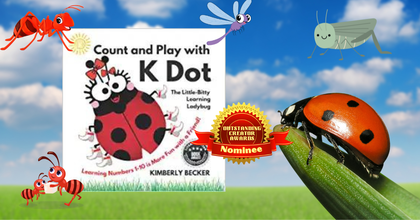
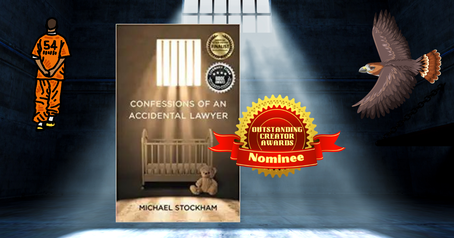
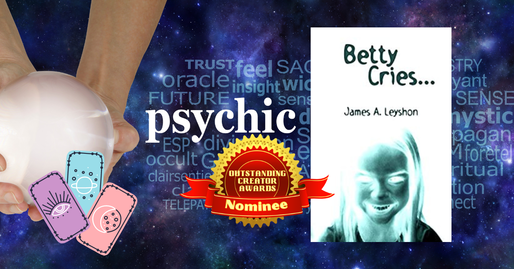
 RSS Feed
RSS Feed